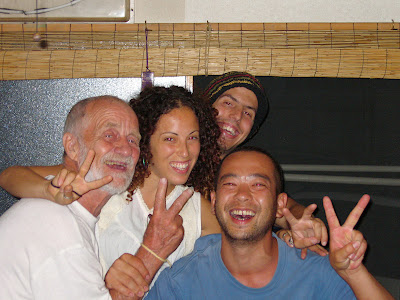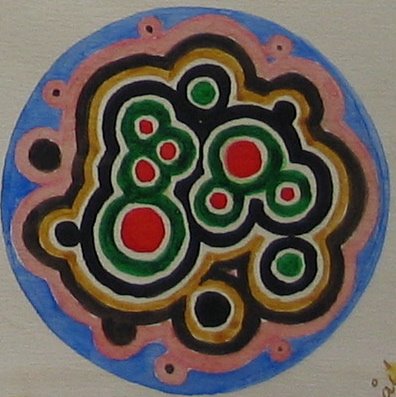 At my first visit Poul and I were put in the same bed at night and Birgitte on a cot next to us. While she was asleep Poul and I fooled around with each other, and for the first time, being not alone, I came, while Poul at ten was still too young to have an orgasm.
At my first visit Poul and I were put in the same bed at night and Birgitte on a cot next to us. While she was asleep Poul and I fooled around with each other, and for the first time, being not alone, I came, while Poul at ten was still too young to have an orgasm.Ancher, their father, was a bitter man. He had expected to follow his father as head of one of Denmark’s great banks, but because of a scandal involving the Minister of Justice, who was Jewish, he ended up as manager of the local branch in Nykøbing. This was his reason for being anti-Semite, but his mother-in-law was Jewish. Naturally there was no love lost between them. Ingse, his wife, was about 15 years younger than he and suffered from this constant war in her family. In everyday life it was glossed over, but at parties the alcohol brought it to the surface. Ancher would loosen up, I think that was the only times I saw him smile, but Ingse would be in the bedroom crying and complaining about her unhappy marriage. This happened a couple of years later when we were old enough to participate in the parties.
 We also had our own illegal parties where we competed with the grown-ups in consuming vast amounts of alcohol. Ingse and Ancher were gone for the weekend and the word was put out. At this time Birgitte had a boyfriend. At the party they got into an argument and Poul threw himself down the stairs to divert their attention from the fight; he deeply loved his sister and was never jealous of her status as the preferred sibling.
We also had our own illegal parties where we competed with the grown-ups in consuming vast amounts of alcohol. Ingse and Ancher were gone for the weekend and the word was put out. At this time Birgitte had a boyfriend. At the party they got into an argument and Poul threw himself down the stairs to divert their attention from the fight; he deeply loved his sister and was never jealous of her status as the preferred sibling.In the early morning everybody helped clean up, but since they didn’t know where everything went, it all got jumbled, the glasses were where the plates should have been, the forks were mixed with the spoons, the person who rolled up the window shades tied some special Gordian knots, and at the last moment, when the keg was rolled out of the living room a remnant of beer ran out on the carpet and made the room smell strongly. We were found out right away, Ancher tried to catch Poul who had a narrow escape. In the end the tempers were calmed and we were punished only with a lecture.
This time I slept with Poul in his room in the attic. He had a huge old bed that had belonged to his grandfather. Here we took our innocent pleasures together every night, taking turns caressing and masturbating each other. Next time I returned we went at it with even more zeal. When I arrived, I asked for Poul and was told he was in his room. I ran up and found the door locked. I guessed what was going on in there, and kept knocking, saying: “Let me in, let me in, it’s me!” The door was opened, and there was Poul with a friend whom I had met before, when he was a very fat little kid. He had changed into a young Adonis, and I was pleased to find him included in our lusty play.
Poul came to visit me for Easter when I was 17 and living by myself in a pension. As soon as we were in my room we fell on each other with passion, and those four days we were as close as we would ever get, both best friends and hot lovers.
A year later, Poul came again and I was of course all fired up with expectations, but when I suggested that we take up where we had left, he turned me down with no other reason than he didn’t want to. I did not insist, for I knew that I was in the ‘wrong’.
 Easter 43
Easter 43So, I swallowed my sorrow and we remained best friends, and when Poul later moved to Copenhagen we saw a lot of each other, long nights of talk and drinking. Poul had quit his job as an apprentice in a grocery store and started at the Royal Academy of Arts and when I came out and changed my life, I chose to study art and be a painter in part because that was what Poul did. When I told him of being gay, he said: “If I ever said anything that hurt you, please forgive me.”
Poul married a strange American woman who drove him to drinking and on to his first mental breakdown. He divorced, but the alcoholism stayed with him, the first many years not too heavily, but later alternating between being on the wagon and taking a yearly binge of excessive drinking.
 Early morning after a night of drinking
Early morning after a night of drinkingWhen I had begun to smoke pot I traveled to Paris and from there further south with a boy I had met. We paid a visit to Poul who was passing the winter painting in Nerja on the south coast of Spain. The visit was not a success. There was a definite split between the potheads and the alcoholic, between the gays and the straight that made communication impossible. It seemed to be the end of my closeness with Poul.
I traveled a lot until I moved to California in 77, and then in 84, after 22 years of silence, I wrote him a letter that became the first in a correspondence lasting till we met one last time. In long letters we recaptured memories from our childhood and youth together and exchanged the stories of our lives, and it felt as if our friendship was intact, but it was nourished by the past; in the present we were far apart.
 In 89 I came to Denmark after twelve years absence. Poul was living in Roskilde, a small town about an hour from Copenhagen. I went there to visit with some friends and naturally also to see Poul. My friends took me to lunch in a restaurant owned by Poul’s second wife and she immediately grasped the phone and called him. He invited me over and I had a shock when I saw him. He had changed into the spitting image of his father, Ancher, whom I had feared and loathed when I was young. I was presented to his third wife and their daughter but I could not stay long because I was engaged for the evening. I think the haphazard character and shortness of our meeting hurt him, for after that he didn’t answer my letter and our correspondence died out.
In 89 I came to Denmark after twelve years absence. Poul was living in Roskilde, a small town about an hour from Copenhagen. I went there to visit with some friends and naturally also to see Poul. My friends took me to lunch in a restaurant owned by Poul’s second wife and she immediately grasped the phone and called him. He invited me over and I had a shock when I saw him. He had changed into the spitting image of his father, Ancher, whom I had feared and loathed when I was young. I was presented to his third wife and their daughter but I could not stay long because I was engaged for the evening. I think the haphazard character and shortness of our meeting hurt him, for after that he didn’t answer my letter and our correspondence died out.Four years later he was found dead in his studio, sitting in his chair with the morning paper and a cup of coffee.
















































